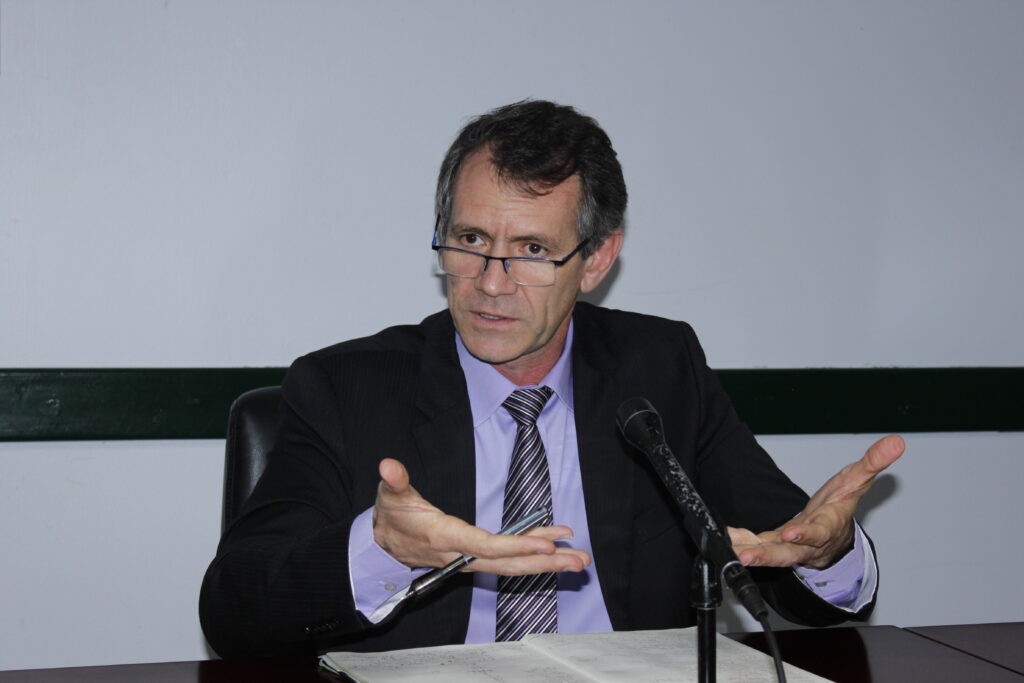
Business Eswatini presents to the Senate Finance Portfolio Committee, strongly opposing the introduction of proposed tax hikes. The business organization notes that PAYE in Lesotho stands at 30%, while in Botswana it’s at 25%.
Photo Creditwww.insidebiz.co.sz:
By Avite Mbabazi
Business Eswatini (BE) has expressed strong opposition against the proposed increase in the income tax rate (PAYE) from the current 33% to 36%.
Business Eswatini yesterday (25 August 2022) presented to the Senate Finance Portfolio Committee their position regarding the Income Tax Amendment Bill 2022. The Senate Finance Portfolio Committee deals with the examination of bills, and departmental budget votes, and is responsible for oversight of the work the department of finance does.
In their presentation, BE called on the house of parliament not to increase the income tax rate from 33 % to 36%, as suggested in the Income Tax Amendment Bill 2022, stating that the over-taxation of the country’s middle class would not necessarily benefit the country’s economy.
“In other jurisdictions, take South Africa for example, individuals who earn as much as E450 000, are taxed at just 31%. In Lesotho, the tax of a person earning a similar income or more is only 30%. In Botswana, only 25% is the maximum levied for PAYE.
Furthermore, for those businesses who fail to remit their taxes, the new bill proposes that the Commissioner General (CG) will have the authority to lock up business premises after which he may sell the immovable and movable property in order to recover the tax owed. BE believes that this is an extreme measure as it is likely to hinder MSMEs’ growth in the country. Due to limited resources, MSMEs are the ones most likely to fail to meet compliance and therefore would suffer from this provision.
Contained in the Bill is also the introduction of a capital gains tax which would see businesses pay a tax on the disposal of their assets. BE commented that this tax would be harmful to businesses as it would lead to them incurring losses on the sale of their assets. As a result, BE contends that the introduction of a capital gains tax would be counterproductive as it would undermine the country’s current investment promotion efforts.

It was not all objection, however, as BE welcomed proposals in the Bill to eliminate double taxation for Eswatini residents earning their income from foreign countries. They declared that it is a great initiative to relieve this tax burden from the shoulders of residents of Eswatini.
Business Eswatini is also in full support of the reduction of the corporate tax which sits currently at 27.5 %. The Bill seeks to reduce corporate tax by two and a half percent, to 25 %. Although BE fully supports this amendment it has expressed that to turn Eswatini into an investment haven the corporate tax rate would ideally have to be at 20 %.
The business organization in its presentation also opposes the introduction of foreign taxable income for a resident person who conducts business within and outside Eswatini. “We believe this country is not ready for worldwide tax. With regards to remittances and Swatis in the diaspora, worldwide tax may encourage tax avoidance and evasion” observes BE.


5 thoughts on “PAYE TAX IN NEIGBHOURING COUNTRIES IS LOWER THAN IN ESWATINI”
Comments are closed.